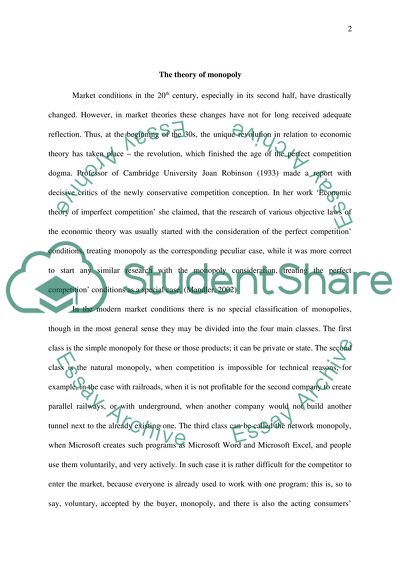Cite this document
(“The Theory of Monopoly Essay Example | Topics and Well Written Essays - 1250 words”, n.d.)
The Theory of Monopoly Essay Example | Topics and Well Written Essays - 1250 words. Retrieved from https://studentshare.org/macro-microeconomics/1517851-the-theory-of-monopoly
The Theory of Monopoly Essay Example | Topics and Well Written Essays - 1250 words. Retrieved from https://studentshare.org/macro-microeconomics/1517851-the-theory-of-monopoly
(The Theory of Monopoly Essay Example | Topics and Well Written Essays - 1250 Words)
The Theory of Monopoly Essay Example | Topics and Well Written Essays - 1250 Words. https://studentshare.org/macro-microeconomics/1517851-the-theory-of-monopoly.
The Theory of Monopoly Essay Example | Topics and Well Written Essays - 1250 Words. https://studentshare.org/macro-microeconomics/1517851-the-theory-of-monopoly.
“The Theory of Monopoly Essay Example | Topics and Well Written Essays - 1250 Words”, n.d. https://studentshare.org/macro-microeconomics/1517851-the-theory-of-monopoly.


